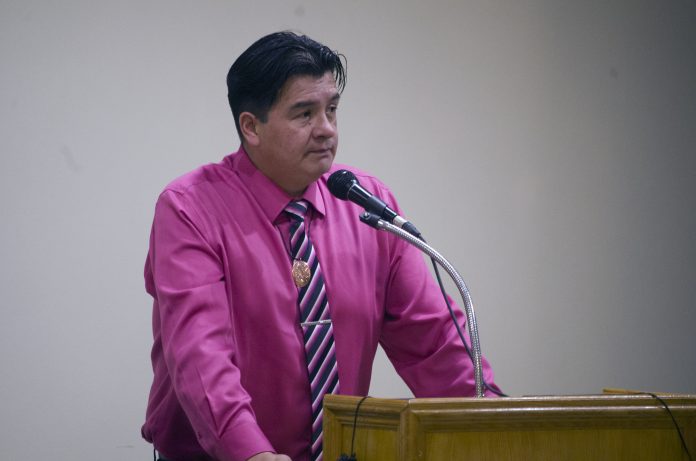
The Federation of Soverign Indigenous Nations (FSIN) says its members are ready to implement jurisdiction to care for First Nations children, but a lack of funding is holding them back.
Bill C-92, an Act respecting First Nations, Inuit and Métis children, youth and families was introduced in February.
According to the federal government, it came out of “extensive” engagements, which began in January 2018 with the emergency meeting in Indigenous Child and Family Services. At that meeting, the federal government committed to six points of action to address the over-representation of Indigenous children and youth in care and reform Indigenous child and family services. One of the points of action was to work with Indigenous communities so they could exercise jurisdiction in the area of child and family services.
Bill C-92 sets out principles that include the best interests of the child, cultural continuity and substantive equality.
In a press release issued Wednesday, FSIN Chief Bobby Cameron said legislation is ready, but without money to support the trasition, it’s destined to fail.
“We are calling upon the federal government for statutory funding for child welfare and to implement Bill C92,” he said. “We have our plan that focuses on language, culture and tradition, ready.”
Cameron also said the province needs to support the transition by becoming allies with the FSIN as they push for funding.
“We want to see Saskatchewan and First Nations coming together on a number of issues affecting all of us. We need a unified front in Saskatchewan, if we want to see action from the federal government. Premier Scott Moe wants to see a lot of changes from the federal government, including the elimination of the Carbon Tax,” he said.
“We need funding for child welfare. Let’s work on these issues together and become better allies in the fight for what Saskatchewan needs for a brighter future for all of us.”
But pairing the fight against the carbon tax with a request for funding to transition child welfare to First Nations communities was not an idea everyone was comfortable with.
As reported by the Saskatoon StarPhoenix, in a statement, Premier Scott Moe’s office agreed funding for the bill is a priority, but said it did not intend to link it with the carbon tax.
“While both issues raised by Chief Cameron are important to Saskatchewan people, they are independent of one another. We do not intend to politicize these issues by linking them together,” wrote press secretary Jim Billington.
Saskatoon Tribal Council Chief Mark Arcand expressed concern that none of the STC’s member nations were consulted about Cameron’s suggestion before it was given to reporters Wednesday morning.
“Why do we have to choose between stewardship of our land and self-determination?” he asked.
Meanwhile, in the FSIN press release, Vice Chief David Pratt spoke about why the funding is so important.
“Agencies need capacity building and infrastructure dollars to ensure that the Bill C92 implementation is successful,” he said.
“We are losing children and they’re continuing to fall through the cracks. First Nations families and communities have the language and culture these children need to have that sense of identity that is vital to their development as successful adults. We do not want pilot projects or delegated agreements; we want full jurisdiction and assertion of our Inherent and Treaty Rights. We need the federal government to step up to the plate with funding and we need the province to work with us so that these children have brighter futures. Successful children grow into successful adults and that only leads to a successful Saskatchewan down the road.”
Rola Tfaili, a spokesperson for Indigenous Services Canada, said the government and Indigenous partners are to co-develop ways to bring in the changes.
She added estimates of what costs for the new programs will depend on the needs of each community and that the government is “actively working with partners toward a new funding model that would address future needs and potential shortfalls.”
— With files from the Saskatoon StarPhoenix’s Zak Vescera

